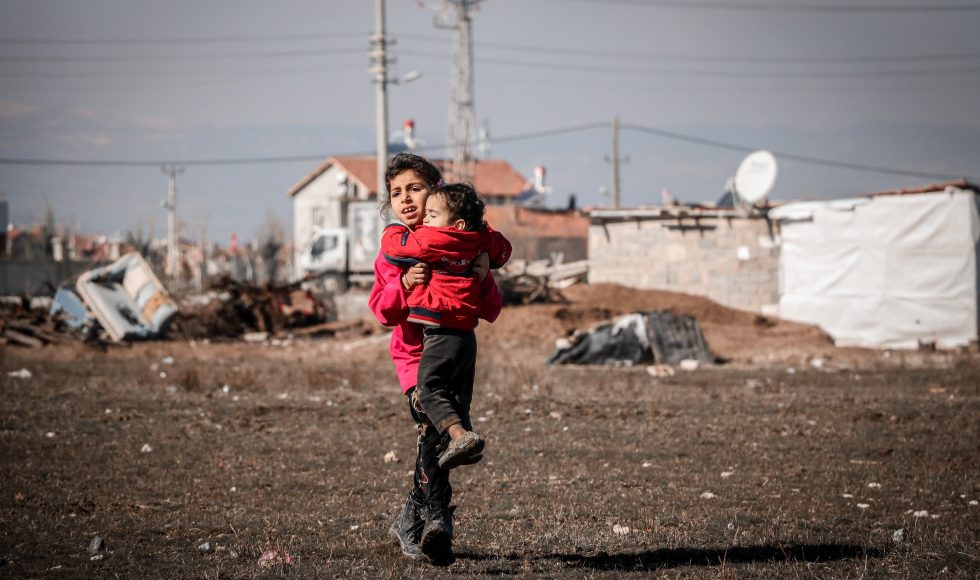Syria’s Struggle Amidst Escalating Regional Conflict: A Comprehensive Analysis
The recent address at the 79th Session of the United Nations General Assembly’s Third Committee in New York has underscored the critical and worsening situation in Syria. This analysis aims to delve deeper into the issues presented by the Independent International Commission of Inquiry on the Syrian Arab Republic and highlights the urgent humanitarian, security, and legal concerns that demand immediate global attention.
The Widening Humanitarian Crisis
Syria is currently at the center of a rapidly deteriorating regional crisis, marked by an influx of displaced individuals fleeing violence. The latest escalation in Lebanon has pushed over 300,000 Syrian refugees back into Syria—an act of desperation rather than choice. This movement coincides with the flight of more than 100,000 Lebanese nationals, all seeking refuge in a nation already marred by years of internal conflict, economic collapse, and relentless violence.
Chair of the Commission, Paulo Sérgio Pinheiro, addressed the Assembly, highlighting the impossible choices facing Syrians: stay in Lebanon under the threat of Israeli airstrikes or return to a homeland where safety remains a mirage. This stark reality emphasizes the perilous nature of the region’s current humanitarian situation, one that has been exacerbated by recent geopolitical developments.
The Dangers of Returning to Syria
The mere fact that Syrians with credible fears of persecution are returning underscores the dire nature of their predicament. Before this escalation, only 1.7% of refugees expressed any intention to return to Syria due to widespread concerns over safety, security, and the risk of human rights violations. Many men of military age have chosen to stay behind in Lebanon or seek dangerous alternative routes facilitated by smugglers, leaving women and children to embark on perilous journeys alone.
Recent investigations by the Commission have revealed disturbing reports of displaced Syrians facing abuse, arrest, and extortion at checkpoints across the country. These predatory practices by both State and non-State actors illustrate the lack of safety even within Syria’s borders. The call for authorities to halt such abuses and commit to protecting human rights is clear and pressing. The involvement of international humanitarian and human rights organizations is essential for ensuring transparency and accountability in these efforts.
Challenges and Limited Progress
Despite some positive gestures from the Syrian government, such as temporarily suspending the requirement for Syrian citizens to exchange $100 at official border crossings, significant barriers remain. The government’s continued use of arbitrary detention and torture, despite a mandate from the International Court of Justice (ICJ) to cease such practices, poses severe risks for returnees and undermines trust in the state’s intentions.
Non-government-controlled areas also offer no sanctuary. Territories under the control of groups like Hay’at Tahrir al-Sham, factions of the Syrian National Army, and the Syrian Democratic Forces (SDF) present their own threats, including violence and exploitation. The past year has seen continued arbitrary detention of activists and protestors across all areas, demonstrating that no region within Syria is truly safe.
Rising Violence and Military Actions
Syria has experienced intensified military conflict across various fronts, contributing to the worsening crisis. Israeli airstrikes have increased substantially, with over 50 reported since July, targeting militias and Iranian officials and resulting in civilian casualties. Additionally, clashes between U.S. forces and Iran-backed militias, a surge in attacks by the Islamic State of Iraq and the Levant (ISIL), and violence involving tribal fighters and the SDF in Deir-ez-Zawr have compounded the country’s instability. Pro-government forces have escalated their attacks in Idlib, displacing hundreds of families and resulting in numerous civilian casualties.
These multifaceted conflicts have left Syrians at the mercy of multiple armed actors, each with its own agenda. The risk to life is further compounded by the widespread destruction of housing, land, and property, stripping refugees and internally displaced persons (IDPs) of their basic rights and means of survival.
Economic and Humanitarian Impacts
The economic situation in Syria is dire. Humanitarian needs have peaked, with over 13 million people requiring urgent assistance, including those recently displaced from Lebanon. However, funding for the UN’s 2024 humanitarian response plan remains woefully inadequate, with only 25% of the required resources secured. Sanctions have exacerbated these difficulties, hindering humanitarian actors’ ability to access financial services and deliver essential aid. The Commission has urged an immediate review of these sanctions to ensure they do not further burden the civilian population or impede humanitarian efforts.
Calls for Global Action
The Commission’s statement to the General Assembly echoed the UN Secretary-General and Special Envoy’s calls for immediate ceasefires in Gaza and Lebanon, highlighting the severe consequences of continued regional conflict for Syria. The persistence of international silence and near impunity has normalized the disregard for international law, enabling parties to commit violations with little fear of accountability. The Commission stressed that these legal frameworks exist to protect fundamental human rights and ensure that armed conflict is conducted within the boundaries of international law.
Member States are urged to commit to protecting Syrian civilians by upholding international legal standards, refraining from supporting parties that perpetrate human rights violations, and reinforcing global humanitarian efforts.
Conclusion
Syria’s ongoing crisis, intensified by regional upheaval and military aggression, requires a concerted global response. The Independent International Commission of Inquiry’s warnings at the UN General Assembly must serve as a catalyst for renewed efforts to address the humanitarian needs, enforce international law, and hold all violators accountable. Without decisive action, the cycle of violence, displacement, and human suffering will continue, eroding the hope for stability and peace for millions of Syrians.
Read the full statement HERE
Ibraheem Jabr is a seasoned legal professional with extensive expertise in international law, human rights, and commercial legal support. Based in Eindhoven, Netherlands,Ibraheem is the Founder and Legal Counsel at Legal Bridge, where they provide expert legal advice to EU-based government agencies and law firms navigating the complex legal landscape of the Middle East and North Africa (MENA) region.



